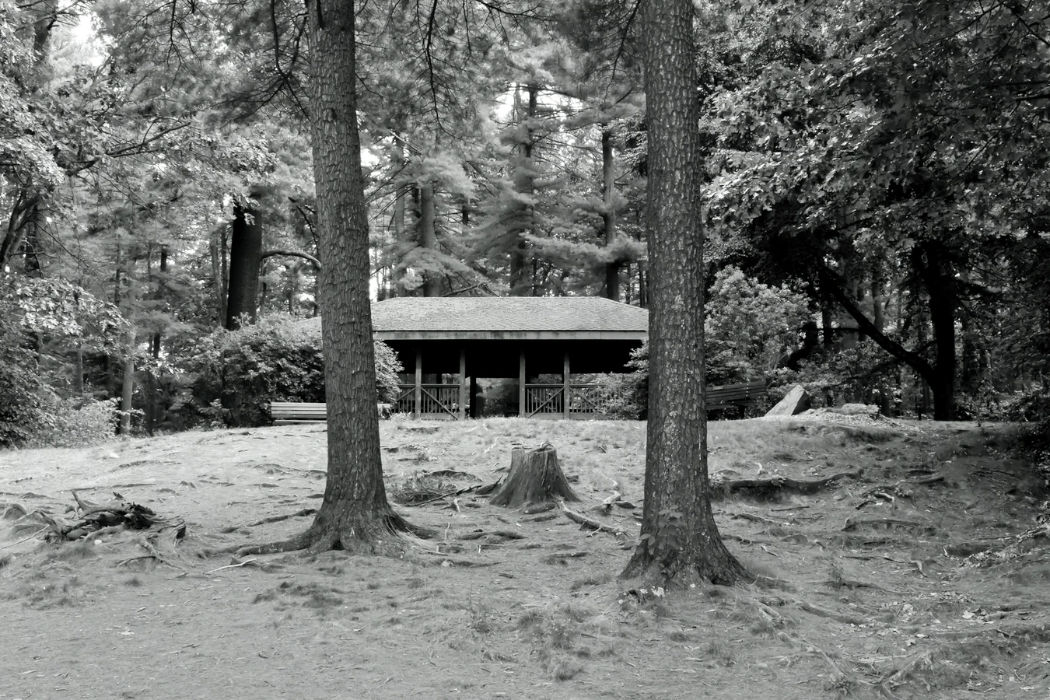This article provides a critical analysis of Paradise Lost focusing on description of Satan, Blank verses in Paradise Lost and the Epic Similes used in the poetry. Paradise Lost is an epic poem in blank verse by the 17th-century English poet John Milton. It was originally published in 1667 in ten books, with a total of over ten thousand individual lines of verse.[/typography]
Satan’s speeches in the book 1 of Milton’s landmark epic Paradise Lost, offer the most reliable exposure to the mind, nature and the personality of one of the most controversial characters penned in Literature.
Satan’s first speech addressed to Beelzebub reveals a character coming to terms with the loss of paradisaical happiness and thought of impending doom. Although “rack’d with deep despair”, Satan presents himself as a fearless character unvanquished in spirit or in his decision for combat which makes him heroic. The first speech reveals Satan as someone who is burning with proud contempt, unyielding hatred towards the Almighty and study of revenge arising out of injured merit. He has a sense of strong ego gets reflected when he utters – “To bow and sue for grace with suppliant knee and deify his power ……. That were a shame and ignominy beneath this downfall”.
Satan’s second speech in Paradise Lost is also addressed to Beelzebub reveals his superb confidence in making evil synonymous with good and fraudulence a virtue. The second speech gives an idea of the pure evil that lurks in Satan’s character when he says – “To do aught never will be our task but ever to do ill our sole delight”. To make the most out of a situation was Satan’s motto which is why he proposed a council to discuss – – “what re-enforcement we may gain from hope, If not what resolution from despair”.
From Satan’s third speech we gather a note of unholy defiance in Satan’s character along with self-proclaimed superiority. The antagonism is Satan’s character reaches its peak when he invokes horrors and hails himself as the infernal master of Hell. The strong determination and will-power that brews inside Satan which is also the source of his indomitable optimism comes to the fore when he boldly exclaims – “The mind is its own place, and in itself can make a heaven of hell and hell of heaven. What matter where if I be still the same.” The megalomaniac aspect of Satan’s character is exposed when he refuses to accept the Almighty his superior even after losing the battle against him – “To reign is worth ambition though in hell, better to reign in hell than serve in heaven”.
In the fourth speech, Satan comes across as an inspiring leader who infuses vigor into his followers and comrades – “Awake arise or be forever fallen”. This particular trait of Satan’s character is magnified in the fifth speech where he addresses the fallen angels as “Powers matchless but with the Almighty” in order to fuel their appetite for rebellion and direct their anger towards God. Satan’s ruthlessness and antagonism reaches new heights when he declares to defeat the forces of heaven by fraud or guile. Towards the end of the speech Satan is reduced to a crafty, desperate, malicious character who seeks to quench his thirst for revenge by wrecking havoc in the lives of the innocent creatures of the new world that Satan was rumored to create.
Thus we see how the succeeding speeches of Satan mark a degeneration of his image from a heroic stubborn fighter and mighty leader with undaunted spirit to a villainous demon who is ready to adopt the vilest means to satisfy his filthy design.
Grand Style, Blank Verse in Paradise Lost
Arnold while talking about Milton very rightly said – “He is our first rate master in Grand Style”. The most striking characteristic feature of Milton’s poetry that account for its attraction one almost a universal parlance is his Grand Style, the grandeur of which is derived from the heroic example of Virgil, the sublimity of the Bible and a European dignity. Milton sought to bring classical antiquity to his readers and inspire them with his bold effects stemming from an egotistical sublimity as well as a proud humility. This makes Milton exclusively meant for readers who can keep pace with his exalted grandeur and his larger-than-life allusions and references to classical myths, history, Biblical sources etcetera.
The Grand Style of Paradise Lost Book 1 deserves special treatment as it is a composite of several features. Epic decorum is molded with a nuanced rhythm as well as an idiosyncratic musicality achieved by a masterly use of alliteration and onomatopoeia. The powerful effect of Rhythm and music on Milton’s Grand Style can be clearly perceived by De Quincey’s statement – “You will be put down with shame by some man reading the line otherwise, reading it with different emphasis, a different caesura or perhaps a different suspension of voice so as to bring out a new and self-justifying effect.”
Milton’s syntax in Paradise Lost has been constantly under the scornful gaze of post-war critics who accused it of an un-English tortuousness. Milton avoided normal syntax in sentence construction such as – “The upright heart and pure” instead of “pure and upright heart”.
He preferred Latin idioms such as “Never since created man/Met such embodied force” and retained the Greek or Latin meaning of words such as sentence meaning opinion, astonished meaning stupefied, scope meaning end motive and so on.
Indeed a Babylonish dialect is identifiable in his lines but this is not because Milton was callous to the intrinsic nature of English but because the grandeur of his subject matter and epic decorum demanded such artificiality and complication. Satan, God or Adam cannot be expected to talk in the language of ordinary life. Milton’s worthily constructed verse paragraphs make his poetical presentation majestic – “Of man’s first disobedience and the fruit of that forbidden tree that brought Death in our world and all our woe , With loss of Eden until one greater man restore us and regain the blissful seat. Sing heavenly muse….” There is a crowding of clauses but the impact is quite vivid. Such spectacular narrative effects and his special syntax have resulted in brilliant lines that have turned out to be proverbial – “Better to reign in hell, than serve in Heaven”.
Milton’s metaphoric prowess that is both explosive and relatable to the epical subject adds to the grandeur of his verse. His epical similes where are grotesque yet beautiful – “A multitude like which the populous North pored never from her frozen loins…” Similar metaphorical references which deserve mention are Satan’s comparison to the will-o-th’-wisp, the mention of Satan’s halo as false glitter, the promotion of God’s goodness as “permissive glory” allotted to Satan by him and so on.
Milton’s Grand Style has a nervous energy, subtle involutions, tentacular imagery, linguistic daring and colloquial ease. In words of Macaulay, it is a style that no rival has been able to equal and no parodist has been able to degrade.
Epic Similes in Paradise Lost:
An essential element of Milton’s Paradise Lost is its profuse employment of similes which is also one of the most fundamental concerns in the conceptual understanding of his grand style. These similes are present in plenty in the Book 1 of this epic and are a ready reckoner of the poetic imagery of Milton and bear testimony to his stylistic innovations while adhering to tradition. Satan’s offers some simple similes where he compares Satan’s ensign to a falling meteor but mostly his similes are long-tailed, digressive and expanded in the manner of Homeric similes.
Miltonic similes are used by the poet for illustration as well as decoration. They go beyond the point of comparison and open up a vista of associations or a succession of images that are beautiful and suggestive. Such elaborations are often irrelevant to the main comparison but they add to the grandeur of the epic and elevate the reader’s imagination to a hallowed point. Thus in the elaborate comparison of the shield of Satan to the moon, Milton apparently departs from the main point of the comparison to tell of Galileo and how he observes the moon through his telescope on the hills in order to discover new lands on its spotty surface. Such myriad of associations transports our mind to different spheres and helps us think more vividly and with more emotion about the shield of Satan.
Milton’s similes are a very interesting addition to the epic as they provide a subtle internal commentary on the character and the action. The fallen angels have been very appropriately compared to the scattered sedge of broken chariot wheels and the carcasses of the King Busiris and his Memphian chivalry who while pursuing the fleeing Israelites with treacherous hatred were overthrown by the waves of the Red Sea after it was vexed by the fierce wind Orion. This Biblical reference to the miracle of the Red Sea is a reminder that the rebel angels just like the Pharaoh’s troops are evil and God is omnipotent and capable of overthrowing both the Memphian chivalry and the rebellious angels by his divine intervention.
Certain similes employed by Milton are of immediate relevance and at the same time they reverberate with significance in the wider context of the poem as a whole. A fitting example would be the simile in which Satan is compared owing to magnificent stature to the vast sea-monster Leviathan who roamed in oceans. While making this comparison, Milton brings up the old legend of night-time sea-men who upon mistaking the sea-monster to be an island anchor their ships to his scaly rind. The sailors are deluded by the monster just like Eve was deluded by Satan. Thus Leviathan, the traditional deceiver becomes an emblem of Satan.
Such long similes had to face the scorn of anti-Miltonist critics. T.S. Eliot found these similes to be an unnecessary digression that distracted readers from the real subject matter but in this context one must remember that an epic poet such as Milton works on a larger-than-life canvas which gives him the liberty to expand the image beyond the dimension which the occasion requires. Moreover, the addition of such similes did not impede the narrative, but emphasized upon it by their subtle relevance.
Milton radicalizes both Biblical History and erstwhile classical epics to create his magnum opus that is unparalleled in both beauty as well as grandeur and from this perspective his individual approach to his epic similes is as commendable as his grand style.
Some online learning platforms provide certifications, while others are designed to simply grow your skills in your personal and professional life. Including Masterclass and Coursera, here are our recommendations for the best online learning platforms you can sign up for today.
The 7 Best Online Learning Platforms of 2022
- Best Overall: Coursera
- Best for Niche Topics: Udemy
- Best for Creative Fields: Skillshare
- Best for Celebrity Lessons: MasterClass
- Best for STEM: EdX
- Best for Career Building: Udacity
- Best for Data Learning: Pluralsight
















